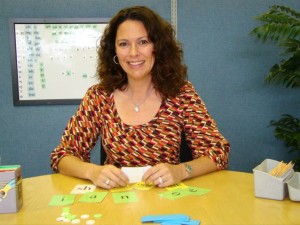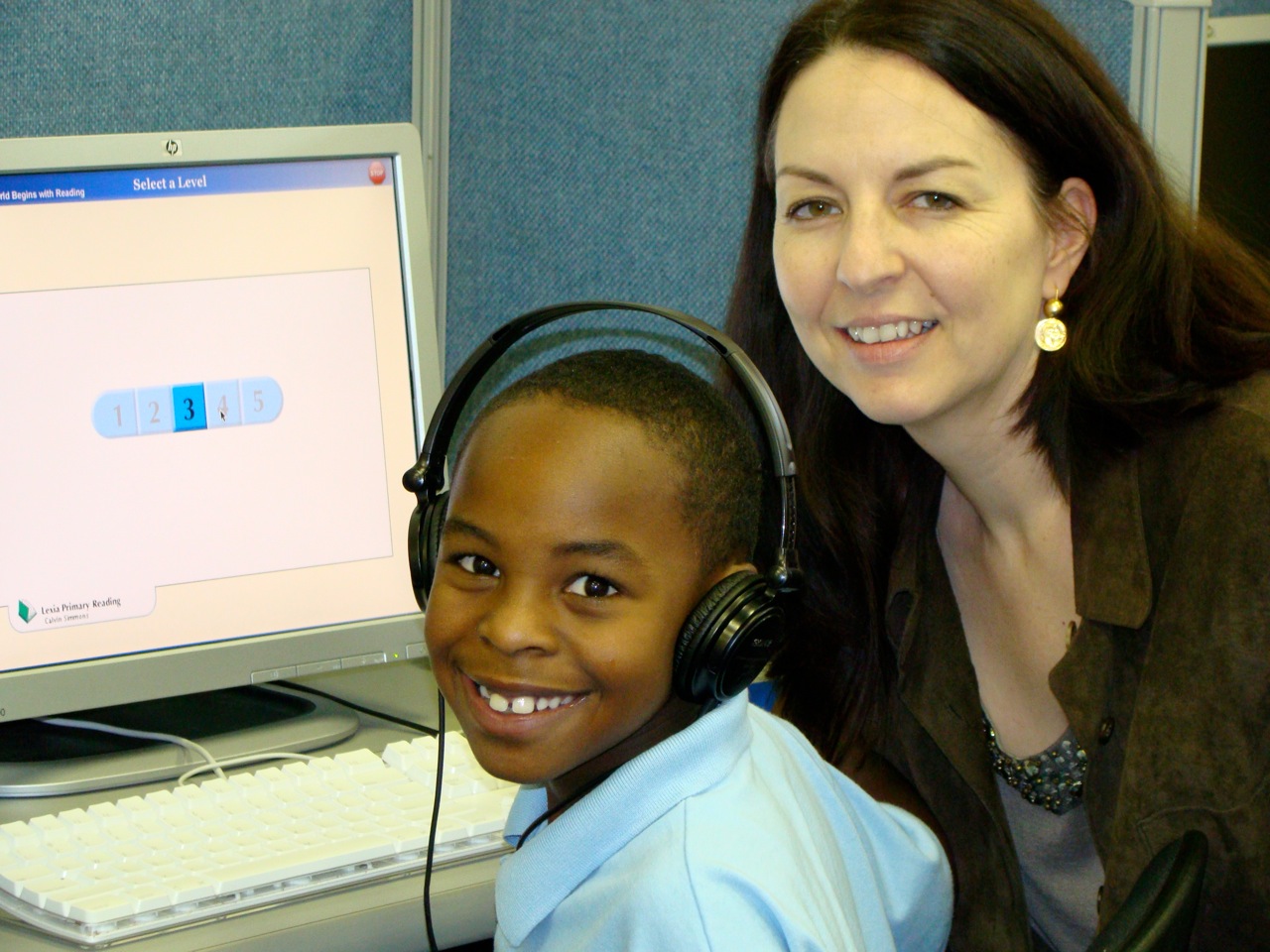
by PRIDE Reading Program Admin | Feb 20, 2016 | A PRIDE Post, Auditory Processing Disorder
Almost every school activity, including listening to teachers, interacting with classmates, singing along in music class, following instructions in physical education, etc, depends on the ability for students to process sounds and have a strong auditory system in learning. But what happens if this auditory system has deficits? Can a child still learn?
Does my child have Auditory Processing Disorder?
Auditory Processing (APD) is a very common learning disability and affects about 5% of school-age children. Auditory Processing can present itself with many different symptoms and behaviors. Often these behaviors resemble those seen with other learning challenges, like language difficulties, attention problems and autism. Most children with auditory processing difficulties show only a few of the following behaviors. No child will show all of them. However, any child who displays several of these symptoms should be carefully evaluated for auditory processing disorder.
- Delayed speech.
- Persistent articulation errors.
- Abnormally soft, loud, flat, formal, or “pedantic” speaking voice.
- Difficulty conducting casual conversations.
- Difficulty reading or spelling due to problems discriminating word sounds.
- Difficulty following oral directions.
- Difficulty organizing behaviors.
- A tendency to appear quiet, distracted, or off topic during group discussions or to interrupt or blurt out answers.
- Long delays before responding to questions or instructions.
- Preferences for nonverbal tasks or a markedly higher performance IQ than verbal IQ.
- Difficulty taking notes.
- Worsening performance in higher grades as oral instruction load and receptive language demands increase.
- Difficulties with inference, abstraction, and figurative language.
- Difficulty hearing in the presence of background noise.
- Difficulty understanding what’s said.
- A tendency to ask for restatement or clarification, or repeatedly saying “what?” or “huh?”
- Marked difficulty understanding speakers with particularly high or low-pitched voices or with prominent accents.
How does Auditory Processing affect my child’s learning?
Children with Auditory Processing Disorders have difficulties distinguishing the sounds or phonemes in spoken words, especially those in complex words and sentences. This is referred to as Auditory Discrimination Deficits. If a child has difficulties discriminating sounds in language, then words will sound unclear or distorted as well as many will sound alike. This in turn will affect a child’s development of language skills. They may have trouble speaking and listening, because of problems learning basic grammar and word meanings. Many vowel and consonant sounds may sound the same to them, especially when spoken quickly. As a result, not only will they have difficulty hearing the differences between words that sound alike (think, thing, sink, thin) they will also have difficulty understanding the connections between those words and the letters used to represent them.
This is why children with Auditory Processing Difficulties often have trouble with reading and spelling. Since they cannot hear the sound distinctions between words, the rules linking sounds to letters and letter groups can be hard for them to master.
Most children with Auditory Processing Disorder have difficulty hearing in the presence of background noise. This is referred to as Auditory Figure-Ground Deficits. Although the children often hear well enough at home or in quiet environments, they may appear hard of hearing or even functionally deaf in noisy environments such as school.
In the classroom, a child with Auditory Processing Deficits will have great difficulties staying focused on a listening task. This is referred to as Auditory Attention Deficits. If a teacher is giving a lecture, for example, the student might listen in for a few minutes but then drift off and daydream missing out on significant amounts of information.
Students with Auditory Processing Challenges have great difficulties remembering information given. This is referred to as Auditory Memory Deficits. If the teacher says, “get a piece of paper and a pencil out of your desk and write down your spelling words,” the student may get confused because there are too many commands at once. Impairments in the auditory memory deficits can severely weaken not only long-term memory but also language development and comprehension.
How can a child with Auditory Processing Disorder get help?
The sooner a child with Auditory Processing Disorder is given proper teaching strategies, particularly in the very early grades, the more likely it is that they will have fewer or milder difficulties later in life. These students will need a very structured, systematic, cumulative, repetitive and multisensory teaching method such as the Orton-Gillingham approach. By using a multisensory approach the student will be able to learn using the visual and kinesthetic modalities while simultaneously strengthening the auditory channels.
The best learning environment for a student with auditory processing is always one-to-one with very minimal distractions and outside noises. Students who have severe auditory processing disorder may need an intensive training program to catch up and stay up with the rest of their class. During this intensive training, students will overcome many reading, writing, spelling and comprehension difficulties and learn strategies that will last a lifetime.
Teachers and parents both need to remember that Auditory Processing Disorder is a real condition. The symptoms and behaviors are not within the child’s control. Children with Auditory Processing Disorder are not being defiant or being lazy. A child with Auditory Processing Disorder can go on in life and become just as successful as other classmates.
Learn more about the New PRIDE Reading Program
________________________________________________________________________________________

Karina Richland, M.A. is the Founder of PRIDE Learning Centers, located in Los Angeles and Orange County. Ms. Richland is a certified reading and learning disability specialist. Ms. Richland speaks frequently to parents, teachers, and professionals on learning differences, and writes for several journals and publications. You can reach her by email at karina@pridelearningcenter.com or visit the PRIDE Learning Center website at: www.pridelearningcenter.com

by PRIDE Reading Program Admin | Jan 31, 2016 | A PRIDE Post, Orton-Gillingham
Learning to read in English would be such a simple task if all similar-sounding phonemes were spelled the same. They aren’t. English is such an unfair language with so many iniquitous rules! For most of us, learning to read means memorizing the symbolic code of letter combinations and then using them in new contexts. Many of us just read naturally, understanding that these letter combinations create words and sounds. Linguists call these sounds ‘phonemes.’ Our brains just register the words and are equipped to read three or four words ahead of time. We are also mentally able to pull words apart, separate them into syllables and apply all of those unfair spelling rules easily and logically.
For a student with a reading disability, this process of reading does NOT come naturally. Students with dyslexia, for example, do not use the process of sounding out phonemes (decoding) while reading and applying spelling rules while writing (encoding). Dyslexics, in general, memorize words in entirety and make mental pictures of each word they learn. The predicament with this strategy is that when they get to a word that they are unfamiliar with, they have no coping mechanisms to attack that particular word.
An example of the difficulty for some of us to learn which combination of letters creates which phoneme is the sound of the letter ‘a’ as in the word ‘cake.’ The long ‘a’ sound is written differently in different words, as in baby, ape, sail, play, steak, vein, eight and they. For students with reading disabilities, something interferes with the acquisition of these written phonemes, and in order to learn, these students must be taught how to read in a different way. One such way is using a multi-sensory method.
Students with a reading disability often struggle with auditory and/or visual processing. They have troubles recalling words and how they are pronounced. This means that they do not comprehend the roles that sounds play in words. These students have difficulties rhyming words as well as blending sounds together to form words. These students do not understand or acquire the alphabetic system expected of them in the early years. If a student with a learning difference is given a task that uses just hearing and vision, without drawing upon other senses, this student will be at a disadvantage. When taught with a multi-sensory approach, students will learn alphabetic patterns, phonemes and words by utilizing all pathways – hearing (auditory), seeing (visual), touching (tactile) and moving (kinesthetic).
When learning the vowel combination ‘oa,’ for example, the student might first look at the letter combination on a picture of a GOAT, then close his/her eyes and listen to the sound, then trace the letters in the air while speaking out loud. This combination of listening, looking, and moving around creates a lasting impression for the student as things will connect to each other and become memorable. Using a multi-sensory approach to reading will benefit ALL learners, not just those with reading disabilities.
The other significant component in helping a struggling reader learn to read and write is utilizing an Orton-Gillingham approach. In Orton-Gillingham, the phonemes are introduced in a systematic, sequential and cumulative process. The Orton-Gillingham teacher begins with the most basic elements of the English language. Using repetition and the sequential building blocks of our language, phonemes are taught one at a time. This includes the consonants and sounds of the consonants. By presenting one rule at a time and practicing it until the student can apply it with automaticity and fluency, students have no reading gaps in their word-decoding skills. As the students progress to short vowels, they begin reading and writing sounds in isolation. From there they progress to digraphs, blends and diphthongs.
Students are taught how to listen to words or syllables and break them into individual phonemes. They also take individual sounds and blend them into a word, change the sounds in the words, delete sounds, and compare sounds. For example, “…in the word steak, what is the first sound you hear? What is the vowel combination you hear? What is the last sound you hear? Students are also taught to recognize and manipulate these sounds. “…what sound does the ‘ea’ make in the word steak? Say steak. Say steak again but instead of the ‘st’ say ‘br.’- BREAK!
Every lesson the student learns is in a structured and orderly fashion. The student is taught a skill and doesn’t progress to the next skill until the current lesson is mastered. As students learn new material, they continue to review old material until it is stored into the student’s long-term memory. While learning these skills, students focus on phonemic awareness. There are 181 phonemes or rules in Orton-Gillingham for students to learn. Advanced students will study the rules of English language, syllable patterns, and how to use roots, prefixes, and suffixes to study words. By teaching how to combine the individual letters or sounds and put them together to form words and how to break longer words into smaller pieces, both synthetic and analytic phonics are taught throughout the entire Orton-Gillingham program.
Students with reading disabilities need more structure, repetition and differentiation in their reading instruction. They need to learn basic language sounds and the letters that make them, starting from the very beginning and moving forward in a gradual step by step process. This needs to be delivered in a systematic, sequential and cumulative approach. For all of this to “stick” the students will need to do this by using their eyes, ears, voices, and hands.
Learn more about the New PRIDE Reading Program
__________________________________________________________________________________
Karina Richland, M.A. is the Managing Director of Pride Learning Centers, located in Southern California. Ms. Richland is a reading and learning disability specialist. She speaks frequently to parents, teachers, and professionals on learning differences, and writes for several journals and publications. You can visit the website www.pridelearningcenter.com

by PRIDE Reading Program Admin | Jan 3, 2016 | A PRIDE Post, Auditory Processing Disorder
Having strong language skills is very important in school. Students who have auditory processing disorder have weaker language skills compared to others of their age and can therefore have serious problems as students. Even though individuals with auditory processing disorder are intelligent in other important ways, students with language disorders are apt to find school especially difficult and sometimes frustrating and embarrassing.
Kinds of problems that students with Auditory Processing face:
- Vocabulary:
Students with auditory processing are sometimes slower at learning, understanding and using new words.
- Comprehending spoken language: Some students with auditory processing feel that the teacher is speaking much too fast. They start getting mixed up or confused when a teacher gives them complicated instructions or explanations.
- Reading: Individuals with auditory processing disorder might find themselves falling far behind in their reading skills. In the beginning grades, these children might have trouble sounding out or identifying individual words because of poor phonemic awareness and phonological processing skills. Others might understand the sounds but have troubles remembering them. As the grades get higher, these students often have more and more difficulty with understanding or remembering what was read which hinders their reading comprehension skills.
- Communicating ideas in words: Sometimes students with auditory processing skills have a strong vocabulary but have difficulties recalling, finding and using the right words quickly when they need them. This hinders their abilities to participate in classroom discussions or makes them nervous when they are called upon in class. Many times these students have excellent ideas but difficulties expressing them in language.
- Writing and Spelling: Students who have difficulties expressing their ideas out loud often also struggle expressing themselves on paper. Compositions, book reports, essays and stories are a huge obstacle of them. Because these kids don’t have a strong sense of the sounds of the language, they will struggle in spelling. They won’t apply spelling rules, usually spelling the words exactly as they look.
What can be done about Auditory Processing Disorder?
Get Help from Teachers:
- A teacher needs to be informed that the student does indeed have an auditory processing disorder and how this might affect the student’s classroom performance.
- The teacher dealing with a student with auditory processing needs to be flexible in their approach, so that they can find a method that suits the child, rather than expecting that all students will learn in the same way.
- The teacher can be cautious not to talk too quickly or in sentences that are too long or complicated.
- The teacher can give the student some visuals and illustrations on what is being said.
- Most often, the student with auditory processing needs to sit in the very front of the class so that he or she can listen and focus on the language better.
- The teacher can also give the student extra time for a response when asked a question, or focus more on yes and no questions for these students.
Get Outside Professional Help:
Students with Auditory Processing Disorders will need extra outside the school help with reading, writing, and spelling. The tutor who does this should be knowledgeable and experienced in working with students with learning disabilities and trained in a reputable multisensory Orton-Gillingham reading, writing, spelling ad comprehension program.
Many students with Auditory Processing benefit greatly when working together with a speech and language therapist. Speech Therapists have been specially trained to work with individuals who are having difficulties understanding or communicating. Both the tutor and the speech therapist can work side by side and also help the classroom teacher understand auditory processing and the student’s language difficulties.
Don’t Give Up!
Students that have Auditory Processing Deficits should never get discouraged. Most of these students do improve as they go through school. However, there might be some students who fall behind in school because of their language problems. It is easy for these kids to get discouraged and give up. When this happens their academic skills end up further behind those of kids who get a lot of practice through schoolwork. Work hard and stay motivated. Get outside help and stay positive.
_________________________________________________________________________

Karina Richland, M.A. is the Founder and Director of PRIDE Learning Centers, located in Los Angeles and Orange County. Ms. Richland is a certified reading and learning disability specialist. Ms. Richland speaks frequently to parents, teachers, and professionals on learning differences, and writes for several journals and publications. You can reach her by email at karina@pridelearningcenter.com or visit the PRIDE Learning Center website at: www.pridelearningcenter.com

by PRIDE Reading Program Admin | Nov 5, 2013 | A PRIDE Post, Autistic Spectrum
Autism Spectrum Disorders include difficulties with nonverbal communication, socialization, and empathy. Children diagnosed with an autism spectrum disorder have difficulty understanding what other people are saying, need help playing with other children, thrive on routines, and find unfamiliar situations difficult. Symptoms in these children can range from very mild to severe social and cognitive delays. This disorder is not necessarily associated with any reading disabilities, but many children with autism struggle with reading difficulties due to language delays.
Autism is a complex developmental disability that typically appears during the first three years of a child’s life. A child with autism will process and respond to information in interesting ways. Although some children can function at a relatively high level, many children with autism have serious cognitive impairments or intellectual disabilities, and some never gain the capability to speak. A child with autism may seem closed off and shut down or locked into repetitive behaviors and rigid patterns of thinking. They might avoid eye contact and resist physical contact, such as hugging, or may have frequent temper tantrums or remain fixated on a single item or activity such as spinning objects. Also, sensitivity to pain could be higher or lower than typical.
The severity of autism can vary, ranging from mild to severe. Children with mild to moderate symptoms are considered “high-functioning.” Two children may share the diagnosis of autism, but behave very differently and have very different skill sets as well as abilities.
Children diagnosed with Autism often struggle in reading and writing skills. These children might have poor phonemic awareness abilities due to the auditory processing problems, which are common in children with ASD. Receptive language problems may also be present in these children. If you can’t hear the sounds, you can’t say the sounds and finally, you can’t read the sounds!
Hyperlexia is a condition where a child demonstrates an early and intense fascination with letters, numbers, patterns and logos, and a self-taught gifted ability to read, spell, write, or calculate, usually before the age of five. At the same time, these children have major difficulty understanding and using oral language skills, as well as socializing and interacting appropriately with people.
Although the early achievement of reading ability makes hyperlexia seem very different than a reading disability, both conditions are rooted in difficulties with understanding and using language. A child diagnosed with hyperlexia is often highly intelligent, learning best from visually presented information. This child can easily manipulate and understand written symbols for language and concepts, and decodes and encodes quite well. They also can read very fluently. Children diagnosed with hyperlexia usually read well but struggle considerable in the area of reading comprehension. Specific comprehension strategies need to be taught to these children including summarizing, making inferences, finding the main ideas, visualizing while reading and understanding and learning new vocabulary.
____________________________________________________________________________________________________________________

Karina Richland, M.A. is the Founder and Director of PRIDE Learning Centers, located in Los Angeles and Orange County. Ms. Richland is a certified reading and learning disability specialist. Ms. Richland speaks frequently to parents, teachers, and professionals on learning differences, and writes for several journals and publications. You can visit the PRIDE Learning Center website at: www.pridelearningcenter.com

by PRIDE Reading Program Admin | Mar 5, 2012 | News & Events
Our summer program is our most popular program of the year. Pride’s teachers are all credentialed and certified in Orton-Gillingham methodology. Pride programs are always taught one-on-one.
Pride’s fun-filled yet intensive one-on-one reading program has become so popular that we even draw families from all over the globe. Recent students have come to Pride from China, Japan, Saudi Arabia, France, England, Canada and even the San Fernando Valley.
Sample Daily Schedule:
9:00 – 10:00: Orton-Gillingham Reading Instruction
10:00 – 10:30: Computer Based Reading Instruction
10:30 – 11:00: Snack, Fun and Movement
11:00 – 11:30: Written Expression
11:30 – 12:00: Orton-Gillingham Reading Instruction
Times:
9:00am – 12:00pm or 1:00pm – 4:00pm Monday – Friday
Our Summer 2012 program runs weekly from June 25th – August 31st. You can sign up for any weeks you like during those dates.
Tuition is $980 weekly
Take advantage of our Discounts!
- 10% off early registration by April 31, 2012
- 10% off for returning families
- 20% off for bringing a friend
- 15% off if you register for 4 or more weeks
Space is limited and our summer sessions fill up quickly.
Call us today at 866-774-3342 to request a registration form. Or email us at info@pridelearningcenter.com







